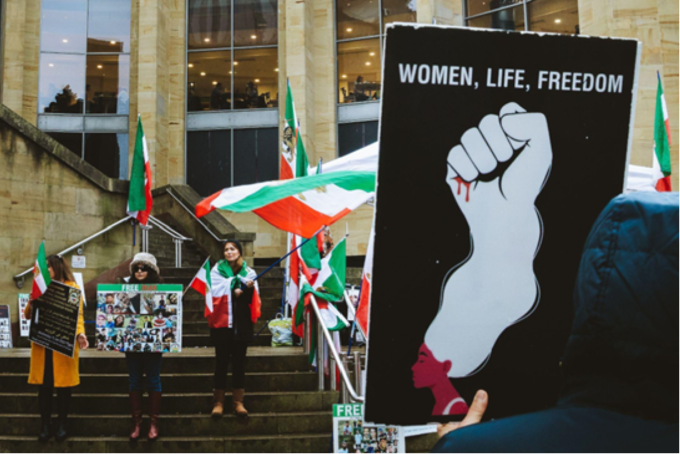
Iran's President Raisi has initiated a committee that poses a direct threat to civilians in response to the Woman, Life, Freedom movement, which the government labels as "nationwide unrest." This committee will serve as a platform for individuals to report complaints against specific protestors, with the assistant to the president being a part of this committee itself. The document specifies that all complaints will be forwarded directly to the president's office for personal processing. This alarming development poses a direct threat to civilians exercising their fundamental human rights, including Freedom of Assembly and Freedom of Speech. Over the years, many individuals have faced prolonged sentences, and in some instances, death sentences. Disturbingly, five executions have been directly linked to the Woman, Life, Freedom protests, with nearly 15 individuals currently awaiting the implementation of their death sentences by hanging.
Following the January 3rd attacks in Kerman, numerous Iranian users on X (formerly Twitter) engaged in discussions regarding the incident. Subsequently, they were labeled as a "threat" by the government and subsequently arrested. One of the individuals taken into custody is Hamid Sa’adati, a pharmacy student at Sadoughi University of Medical Sciences in the city of Yazd. The government-affiliated users on X disclosed his identity.
Another affected individual is Roya Heshmati, who, prior to the attacks, had been sentenced to 74 lashes for a photograph posted on social media where she appeared without the compulsory hijab, dressed modestly in a red shirt and a long black skirt. Initially detained for 11 days, she was later fined $25, sentenced to 74 lashes, and faced thirteen years in prison. However, the appeal court dropped the prison sentence. Heshmati's sentence sparked significant public outrage, especially considering that the recent hijab law passed by the parliament does not include provisions for 74 lashes.
Numerous reports have come to light, revealing the exposure of identities belonging to protestors and online government critics. Given the recent actions of the Special Committee, this unfolding situation holds the potential to significantly compromise the lives of individuals who are earnestly exercising their fundamental rights.
Within the realm of cybersecurity, entities known as "cyberies" employ a spectrum of techniques. One prevalent method involves the formulation of straightforward trends, such as "share a black & white photo of yourself" or "discuss challenges in your profession." Unbeknownst to participants, these trends inadvertently lead to the divulgence of personal photos and details, subsequently aiding in the identification of their online accounts.
Another sophisticated approach involves the utilization of paid accounts on platform X, affording access to Application Programming Interfaces (APIs). Leveraging these APIs allows X users to interface with servers, extracting comprehensive data pertaining to individuals engaging with their posts. This, in turn, streamlines the process of identifying the actual person behind the online account.
Gholamreza Soleimani, the Basij paramilitary chief of IRGC, has noted the prevalence of these cyber units, citing a considerable number of "3,500 cyber battalions" supporting the regime online in 2021. Moreover, everyday Iranian applications, utilized for commonplace activities like banking services and online shopping, serve as an additional pivotal source of information. In light of these developments, the implications for individuals exercising their fundamental rights are increasingly profound.
Geneva International Centre for Justice (GICJ) is deeply concerned about the recent actions taken by the Iranian government against critics and online individuals, posing a severe threat to their lives. We strongly urge companies such as Meta and X to reevaluate their privacy policies concerning the safety of individuals' data and private information. They should be held accountable for allowing government-affiliated users to access users' private information. We advocate for the same rights that are safeguarded for people offline to be implemented online, ensuring a secure space for the exercise of freedom of speech.




